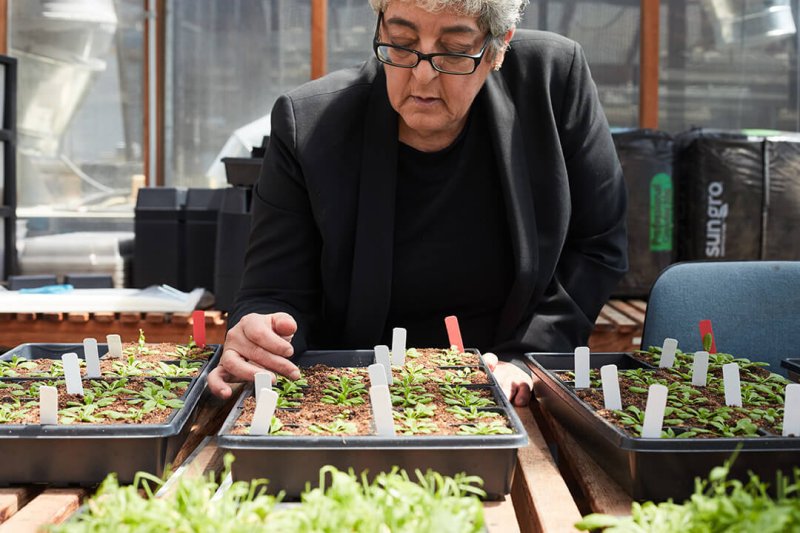One scientist has a promising idea to solve two major problems at once—removing carbon dioxide from the atmosphere and feeding people and animals—by breeding a “super plant.” But her project, urgent though it is, might be unnecessarily slow for political reasons. Due to concerns about political opposition to genetically modified organisms (GMOs), she has chosen to genetically alter plants the old-fashioned way, through selective breeding, rather than through a newer, faster technology, the gene-editing tool CRISPR.
Joanne Chory, a plant biologist and geneticist, is director of the Plant Molecular and Cellular Biology laboratory at the Salk Institute for Biological Sciences and a Breakthrough Prize recipient. She created an initiative called “Harnessing Plants for the Future” to develop a super plant that will both provide food and store carbon dioxide in its roots.
…
Since major breakthroughs earlier this decade, CRISPR has become relatively cheap and easy for labs to deploy. So why isn’t Chory using it? In order to avoid political opposition from activists opposed to GMOs….
…
A gene-editing tool like CRISPR allows for much faster cross-breeding than once was possible, transferring special characteristics such as enhanced suberin production from one plant to another. Yes, the resulting organism would be genetically modified, but so are virtually all the other organisms we consume.
Read full, original post: A plant that could save civilization, if we let it































